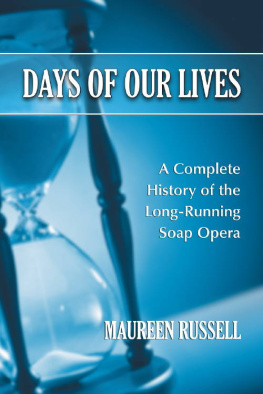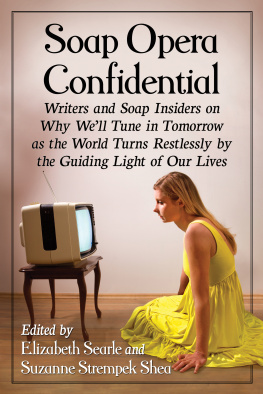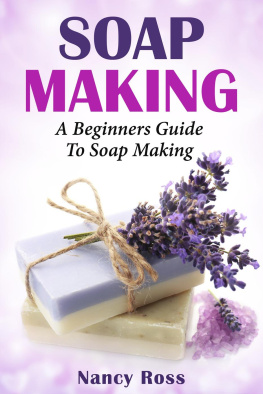
Screen Tastes
In Screen Tastes: Soap Opera to Satellite Dishes Charlotte Brunsdon analyses a wide range of contemporary film and television programmes, from British soap operas and crime series to Hollywood movies such as Working Girl and PrettyWoman. As well as interpreting the pleasures and meanings that these texts offerparticularly for women viewersthe book is concerned with the language of criticism, particularly feminist criticism, and the aesthetics of popular culture. Why have feminist media critics been so interested in the soap opera viewer? What is meant by quality in television? What are the race politics of the television crime series? And was the fuss about the erection of satellite dishes on British homes really about architecture?
Screen Tastes brings together Charlotte Brunsdons key writings on film and television criticism, with introductions which contextualise and update the arguments, and new work on the post-feminist girly in recent Hollywood cinema. Brunsdons focus is on the tastes and pleasures of the female consumer as she is produced by popular film and televisionand by feminist criticism.
Screen Tastes documents an important contribution to the development of a feminist cultural studies in the 1980s and 1990s with concerns ranging from shopping films to the deregulation of public service broadcasting, from feminist teaching to the aesthetics of television. While acknowledging debates about the female spectator which underpinned the defence of soap opera and womens films, Brunsdon argues against feminist criticism getting stuck for ever in a girly zone. In a period in which global television is undergoing radical transformation, the book responds to problems facing the cultural studies agenda in an age of aggressive de-regulation.
Charlotte Brunsdon teaches in the Department of Film and Television Studies at the University of Warwick. She edited the collection Films for Women (1986) and is the co-editor, with Julie DAcci and Lynn Spigel, of FeministTelevision Criticism: A Reader (1997).
Screen Tastes
Soap opera to satellite dishes
Charlotte Brunsdon
First published 1997
by Routledge
11 New Fetter Lane, London EC4P 4EE
This edition published in the Taylor & Francis e-Library, 2005.
To purchase your own copy of this or any of Taylor & Francis or Routledges collection of thousands of eBooks please go to www.eBookstore.tandf.co.uk.
Simultaneously published in the USA and Canada
by Routledge
29 West 35th Street, New York, NY 10001
1997 Charlotte Brunsdon
All rights reserved. No part of this book may be reprinted or reproduced or utilized in any form or by any electronic, mechanical, or other means, now known or hereafter invented, including photocopying and recording, or in any information storage or retrieval system, without permission in writing from the publishers.
British Library Cataloguing in Publication Data
A catalogue record for this book is available from the
British Library
Library of Congress Cataloging in Publication Data
Brunsdon, Charlotte.
Screen tastes: soap opera to satellite dishes/Charlotte Brunsdon.
p. cm.
Includes bibliographical references and index.
1. Feminism and motion pictures. 2. Feminist film criticism.
3. Women in motion pictures. 4. Television and women.
I. Title.
PN1995.9.W6B78 1997
791.43082dc21 9635327
ISBN 0-203-99300-4 Master e-book ISBN
ISBN 0-415-12154-X (hbk)
ISBN 0-415-12155-8 (pbk)
Illustrations
Acknowledgements
The author and publishers are grateful to the following for permission to reproduce visual material:
Hello Magazine; Margaret Duerden, Reference Librarian of Central Broadcasting for her advice and ATV Licensing for courtesy of Young and Rubicam.
For permission to reprint articles, the author and publishers thank Oxford University Press, The Womens Press, Pandora, Indiana University Press and the British Film Institute.
It is impossible, in a collection of this type, to make proper acknowledgement to the many people who have made the work possible. My intellectual debts are obvious from the text, but there is a broader debt to the Centre for Contemporary Cultural Studies at the University of Birmingham under Stuart Halls direction in the 1970s which it gives me pleasure to record. This is in many ways a Birmingham book, and it pleases me to recall my obligations to, and many arguments with, friends and colleagues there. I also wish to acknowledge the following who commissioned, provoked or edited the original papers and essays: Bobby Allen, Helen Baehr and Gillian Dyer, John Caughie, Pam Cook, John Corner, Peter Dahlgren; Kath Davies, Julienne Dickey and Teresa Stratford; Alan Durant; Larry Grossberg, James Hey and Ellen Wartella; Ann Kaplan, Len Masterman, Patricia Mellencamp, Mandy Merck, Mark Nash; Ellen Seiter, Hans Borchers, Eva-Maria Wrath and Gabriele Kreutzner; Judith Squires.
The University of Warwick, students on the Film/Lit degree and chairs of the Department of Film and Television Studies, Jose Arroyo, Richard Dyer, V.F.Perkins and Ginette Vincendeau have offered material support and constant intellectual stimulation for which I am most gratefulas has Rebecca Harden. The final manuscript would not have seen light of day without the assistance of Rachel Moseley and I am most grateful to my friends Ien Ang, Erica Carter, Angela McRobbie and David Morley for good ideas and speed reading. I could persuade none of them to write it for me.
Every effort has been made to trace the copyright holders of material reproduced in this book. The author and publishers would be pleased to make further acknowledgement in any future editions.
General introduction
This is a book about television and film, but it is also a book about the criticism and study of these media. While I do analyse and discuss particular television programmes and films in detail, my repeated interest, in a period in which academic attention to the audiovisual has become more legitimate, is in how these texts and media are discussed. I am interested in who can speak about culture, within which constraints, drawing upon which repertoires. What produces particular texts as worthy of study, and why are others illegitimate? These questions are nearer the surface in the study of film and television than in some more established disciplines because the study of film and television is less legitimate, and has a much shorter academic existence. Knowledge about cinema and television is curated outside as well as inside the academy. People keep collections of favourite films or television seriesbut they also accumulate collections of facts and the lore of fans. As a young film teacher in the 1970s, I soon had to learn that many members of my evening class knew more than I would ever know about, for example, particular directors or the history of censorship in Britain. All I had to offer was greater familiarity with the conceptual frameworks within which the academic study of film was being legitimated. So in the class we would enact the contestation of how film should be known about and the terms in which it should be talked about. I found this sense of the constitution of the field of study enormously excitingI liked the way in which we seemed to be making something new. This moment didnt last that long with film studies, and I think one could argue that the impenetrability of some film studies language is partly a shrouding of the youth and volatility of the field. But that same sense of








